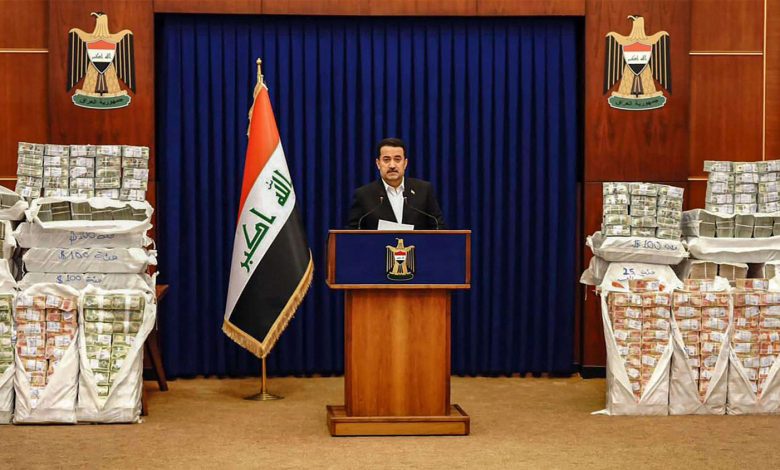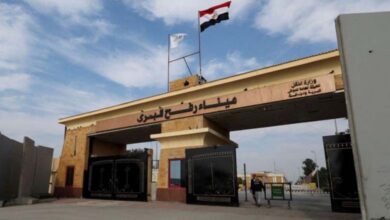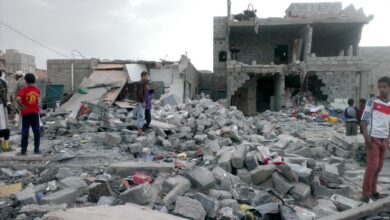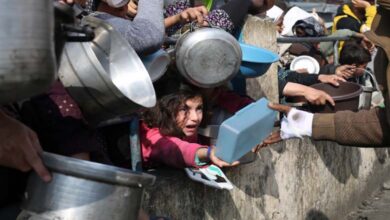Billions stolen in Iraqi prisoner feeding contract

The issue of financial corruption related to feeding prisoners has sparked a wide controversy in Iraq, not least the “Robbery of the Century” scandal, in which a number of officials were involved in embezzling $2.5 billion from tax rebates. This reveals that corruption has become the first threat to the Iraqi state, despite Prime Minister Mohammed Shia’ Al Sudani’s talk of efforts to curb this phenomenon.
Sulaimaniyah MP Soran Omar called on Thursday for the cancelation of the contract with the company responsible for the food dossier after suspicions of corruption were revealed.
In a statement published by the Shafaq News Agency, Suran said, “In Iraqi prisons, there are 80,000 prisoners. If 1,000 dinars were embezzled from each of the three meals a day, embezzlement would total 240 million dinars a day, or 7,200 million dinars a month.”
The figure is as shocking for Iraq, which is looking for resources to cope with some of the economic hardships as the theft of the century.
“The prisoners complain about the poor quality of the meals they are receiving,” Soran said, adding that there was “a big corruption and unreasonable profit in the contract concluded between the justice ministry and the food processing company.”
He expressed his deep regret for the magnitude of corruption, which harmed state institutions and even the prison sector, saying, “Unfortunately, administrative and financial corruption has been inflicted on most state facilities. Down to Iraq’s prisons, even prisoners have not escaped from it.”
The deputy held the Justice Ministry responsible, accusing it of negligence in the file, saying, “The Justice Ministry is responsible for contracting with the Miqat Company for Food Industries and Equipment for a period of seven years, which is totally unacceptable.”
“This company was established in 2021 with a capital of 5 billion dinars,” he said. “Intensive investigations are supposed to be conducted because the prisoners are very upset with these foods, and the concerned authorities must cancel this contract as soon as possible.”
The MP’s position comes after an Iraqi court summoned Justice Minister Khalid Shawani and another ministry official on Wednesday over the “obstruction” of an investigation into the case after they “refrained” from providing documents, according to a statement from the government’s Federal Integrity Commission.
In early December, the Commission on Integrity, which investigates corruption cases, opened an investigation into “information related to suspected corruption in the file of feeding prisoners,” the “poor quality of food provided,” and the insufficient quantities provided, despite the payment of financial dues, as stated in official statements.
The Commission on Integrity’s statement confirmed “the issuance of a recruitment order against the current Minister of Justice and the Director of Security Permits in the ministry” by a court specialized in corruption cases, in order to “exploit the authority of their functions” and to prevent them from “providing the CPI team with the required documents.”
CPI head Haidar Hannoun said in a press conference Tuesday that the required documents “incriminate defendants”, accusing the minister of “using his authority to disrupt the work of the CPI”.
Following a tour of a prison on Tuesday, the justice minister announced the formation of a committee headed by the senior deputy minister to monitor distribution and prevent any corruption in procurement and distribution, according to a statement.
The minister said he “follows up on the issue of banquets and food on a daily basis to protect inmates from extortion, and in implementation of the ministry’s and government’s directives to protect human rights, including the inmates”. He also banned the sale of items to inmates that “fall within the list prepared by the Ministry of Justice”.
“The reports submitted by the ministry’s monitoring agencies indicate that the companies furnishing the prisons are not fully equipped despite the payment of previous years’ financial dues,” he said.
Although corruption is rampant in all state institutions in Iraq, there have been few prosecutions of these cases, even if they do take place, only against junior officials.
The new Iraqi government has made fighting corruption one of its priorities.
The announcement of the theft of $2.5 billion in tax money in the fall of 2022 was one of the country’s many major corruption scandals known as the “Theft of the Century”.
The Iraqi government and the Integrity Commission announced the return of a few million looted money, which sparked criticism and accusations that the authorities did not do enough to recover the money from the corrupt, while corruption has become a real challenge to the authorities.
“Rampant and systemic corruption is one of the biggest challenges facing Iraq,” Jeanine Hennis-Plasschaert, the UN Secretary-General’s Special Representative for Iraq, said in a letter in December, noting that “its economic cost and negative impact on stability and prosperity are enormous.”
She added that corruption “deprives citizens of their rights, discourages international investment, and robs the state of the resources needed to provide its citizens with schools, hospitals, better roads, and countless other public services.”












